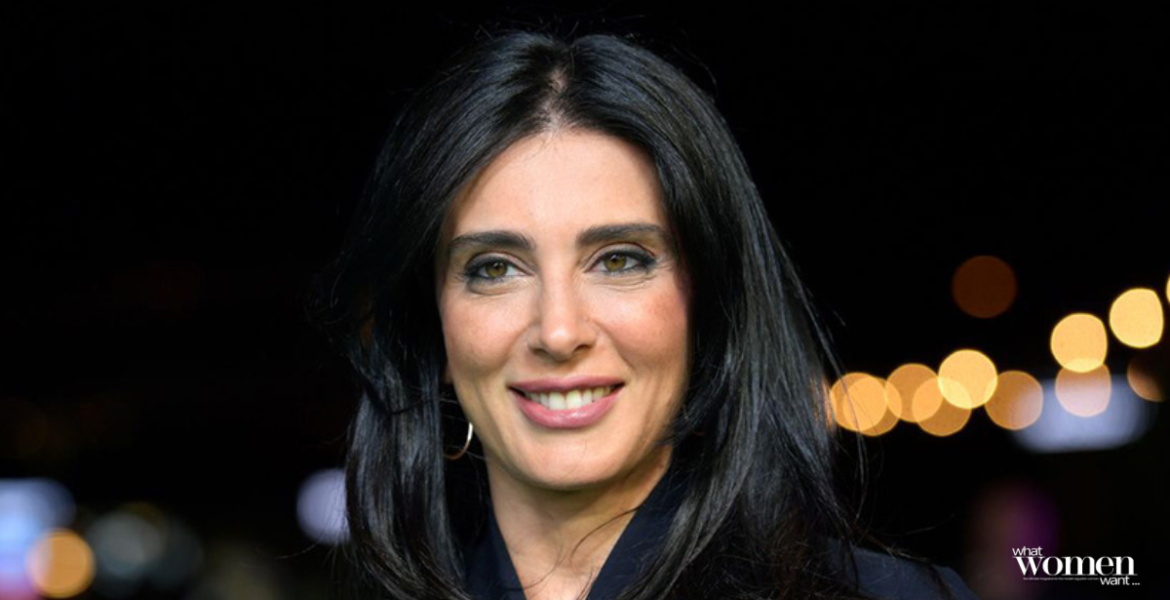Beautiful shots of divine femininity, groups of women rendering a lovely melody, and a profound political commentary is everything and more that you find in a Nadine Labaki work. Lebanese director, screenwriter, and actor Nadine is known for tearing down stereotypes and touching on radical issues. She is an Honorary Degree Recipient from the American University of Beirut. She has become one of the most admired and influential filmmakers of her generation in the Arab world.
The Beginning of Her Story
Nadine’s love towards film began at a young age. Nadine and her sister would spend endless nights watching films together. She always knew that she would end up in the industry. In fact, she made sure to do everything in her willpower to end up there. In 1997, Nadine obtained a degree in audio-visual arts at Beirut’s St. Joseph University. She earned top prizes non-stop for her class projects. It was her final student project in college, however, that got her noticed abroad. Nadine directed a film called 11 Rue Pasteur, which won the “Best Short Film Award” at the Biennale of Arab Cinema at the Institut du Monde Arabe.
She moved on to direct adverts and many music videos for renowned Middle Eastern singers. She directed music videos for the likes of Nancy Ajram, Nawal Zoghby, Katia Harb, Carole Samaha and Majida El Roumi. It was her unparalleled, highly modern approach to music videos that earned her an international reputation and several awards. By age 30, Nadine was already the talk of the creative industries as a director of over 50 television ads for high-profile firms. Her work also earned two back-to-back Murex D’Or for “Best Video Clip Director of the Year”.
Cinematic Journey
In 1998, she attended an acting workshop at the Cours Florent in Paris to further expand her talents. Nadine has always gravitated towards films discussing the feminine experience and challenging the apathy towards political unrest in Lebanon. Her roles in films like Stray Bullet, Rock The Casbah, and more recently Back To Alexandria have all flawlessly portrayed the complexity of female relationships, whether between sisters or a mother and daughter. She is never afraid to discuss political themes in her films.
Nadine Labaki’s directorial debut Caramel (Sukkar Banat) is the second role she ever played on the big screen. The film takes the viewer through the day-to-day happenings in the lives of five Lebanese women. Set mainly in a beauty salon, in a colorful and feminine haven where they share and entrust their hopes, secrets and dreams. Caramel sensitively depicts social issues through a female narrative. The film collected prizes at many festivals around the world and the industry. After only one directorial in her filmography, Variety named her among 10 Directors to Watch at the Sundance Film Festival.
In 2010 she directed, co-wrote, and starred in her second feature film Where Do We Go Now? (Halla La Wen). This film is a drama that tells the story of Muslim and Christian women who join forces to soothe religious tensions and put a stop to the tide of violence in their war-torn village. The film premiered at the Cannes Film Festival and was international success. It won the people’s choice award at several festivals. Also, the film was nominated for best foreign film at the Critics Choice Awards in Los Angeles.
Her Masterpiece, Capernaum
Nadine Labaki began work on Capernaum, her third feature film, in 2013. Her artistic triumph tells the story of a 12-year-old boy living in the slums of Beirut. She extensively studied and interviewed children on the streets of Beirut for the film. Zain Al Rafeea, a Syrian child refugee, portrays the main character, which is named after him. Nadine achieves authenticity by casting non-professional actors in her films.
Capernaum received wide praise. It was selected to compete for the Palme d’Or at the 2018 Cannes Film Festival after a 15-minute standing ovation–the fifth ever longest. Capernaum got Nadine Labaki her first nomination in the Foreign Language category at the 2019 Oscars, making Nadine Labaki the first female and the first Arab director to be nominated in that category.
Political & Humanitarian Stances
The Oscar-nominated director has been a High Profile Supporter for UNHCR, the UN Refugee Agency since 2018. Nadine gave the keynote address at the 2019 Nansen Refugee Awards in Geneva. She continues to support UNHCR’s campaigns on social media, most recently making a video for World Refugee Day 2020 where she reflected on her time spent with Zain on Capernaum. After being chosen to be a jury member for the 77th edition of Cannes Film Festival last May, she used her platform to make an emotional speech implicitly. She talked about Israel’s war on Gaza, saying it was wrong to remain indifferent during times of injustice around the world. “There are films that remind us of our reality and remind us that the world is, unfortunately, divided into groups and that there are still unbearable injustices,” she told the audience at the closing ceremony.

